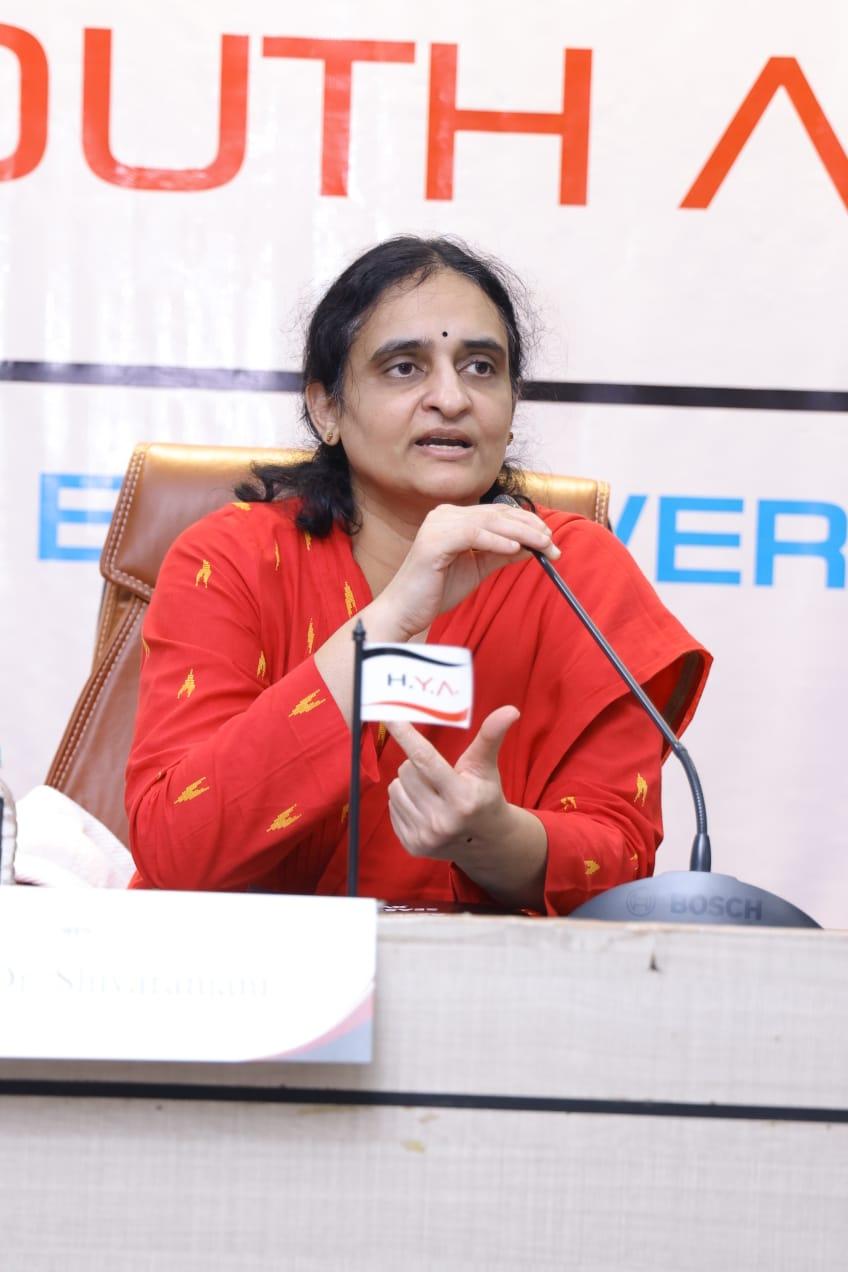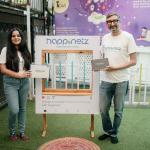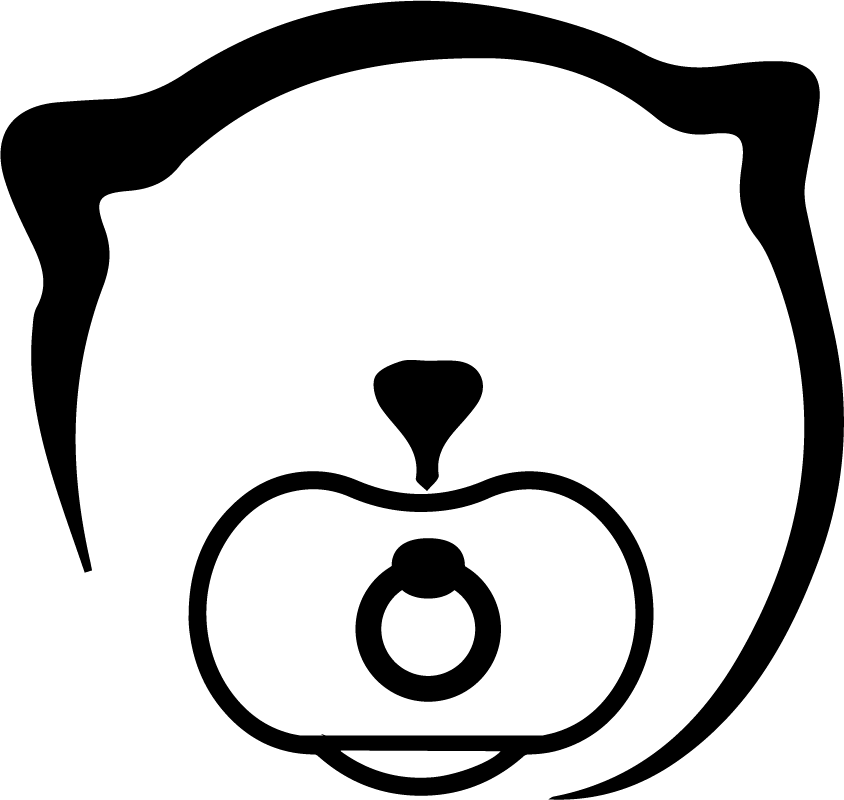When Dr. Sivaranjani Santosh, a Hyderabad- based paediatrician, first began questioning a popular drink misleadingly labelled as “ORS” on the pharmacy shelves, she didn’t imagine she’d one day stand against one of India’s largest consumer health giants - or that she’d win.

Her fight against ORSL , a product misleadingly marketed as Oral Rehydration Solution (ORS), wasn’t just about labels. It was about protecting millions of Indian children from preventable harm and confronting a medical and regulatory system that had looked away for far too long. (Explore more stories in Parent Awareness & Health on Mapabear.)
“It’s that anger, how dare they do this to our children?” Dr. Sivaranjani says. “When the Indian Academy of Paediatrics didn’t support me, I knew if I walked away, no one else would take this up. So, I persisted like a mad lady.”
After nearly seven to eight years of petitions, awareness drives, and relentless social media advocacy, the Food Safety and Standards Authority of India (FSSAI) finally issued a decisive order banning the usage of ORS on the labels/trademark of ORSL, RebalanzVitORS , GluconDActivORS etc. on 14th and 15th October 2025, following sustained public pressure and mounting medical evidence. But the story didn’t end there.
When ₹180 crore worth of already-manufactured stock was requested to be cleared for release post-ban, Dr. Sivaranjani once again mobilised citizens, parents, and the medical community online urging the authorities to halt the sale. As the campaign gained momentum, credible voices like FoodPharm er , leading paediatricians, and several medical influencers began rallying behind her cause, amplifying the call for accountability. This second victory, achieved later, became a watershed moment for public health activism in India proving how persistence, collective awareness, and credible advocacy can hold even the biggest corporations accountable.
Table of contents [Show]
- The Power (and Pain) of Persistence
- The Bigger Problem: When Regulation Fails
- Inside India’s Medical Misinformation Maze
- The Human Cost of Negligence
- Parent Awareness: The First Line of Defence
- What’s Next: From One Battle to a Bigger Mission
- Lessons from an Eight-Year Fight
- For the Next Generation of Doctors
- FAQs
The Power (and Pain) of Persistence
The victory didn’t come easily.
“It was a traumatic, torrid roller coaster,” she recalls. “Without much support from my own medical fraternity. In fact, much of it was negative or indifferent.”
While major medical associations stayed silent, parents, journalists, and everyday citizens became her allies. Social media became her courtroom.

“That’s the power of social media,” she says. “The momentum was built by people ; parents, doctors on social media, podcasters, journalists. Awareness won this battle.”
The turning point came in 2025 this year , when her campaign gained national attention and widespread online support. The FSSAI, under public pressure, reaffirmed its decision to stop distribution of the misleading products ORSL , RebalanzVitORS, GluconDActivORS etc.
“It shouldn’t have taken so much time,” she adds, “but this shows how deeply corruption is rooted in our system.”
The Bigger Problem: When Regulation Fails
The ORSL case revealed not only one company’s deception but also the gaps in India’s drug regulation, testing, and recall systems.
Even after the ban, the product was still found in smaller stores , a haunting reminder of how enforcement often fails to match intention.
“What can a doctor do?” she asks , when asked if the doctor was to be blamed for the death of 20 children in Madhya Pradesh due to the contaminant in the cough syrup. “The bottle comes sealed. We don’t know what’s inside. The system allows irrational formulas, vague permissions, and over-the-counter sales of these syrups. It’s dangerous.”
Dr. Sivaranjani’s concerns echo larger national tragedies like the recent cough syrup deaths in Madhya Pradesh, where contaminated formulations claimed the lives of children.
“These are preventable deaths,” she says, visibly pained. “You’re talking about healthy children being pushed toward death. That’s unacceptable.”
Inside India’s Medical Misinformation Maze
One of the most disturbing revelations from her journey was how medical misinformation thrives even within the system itself.
“Many doctors didn’t realize what was happening,” she explains. “Paediatricians themselves were unaware until I started calling it out publicly. Awareness is the first step but we also need courage.”
From misleading advertisements to lookalike medicines (for instance, different formulas sold under nearly identical names), India’s pharmaceutical landscape often leaves parents confused and vulnerable.
“You can’t imagine how many times a doctor writes ‘3 ml of syrup’ and the chemist gives 3 ml of drops instead. It’s chaos,” she says.
That chaos, combined with over-the-counter sales and poor awareness, becomes a perfect storm. Parents end up administering the wrong medicine or mistaking flavored electrolyte drinks for life-saving ORS.
The Human Cost of Negligence
Beyond the legal and technical battles, what drives Dr. Sivaranjani is grief. Grief for children who should have lived.
“These deaths are not inevitable,” she says. “We try our best when a child is seriously ill but how do you process losing a child to a mislabeled bottle?”
Her voice hardens, then softens. “That’s what keeps me going.”
Parent Awareness: The First Line of Defence
For all her criticism of the system, Dr. Sivaranjani believes parents can play a powerful role in prevention.
“Medicines are not the solution for everything,” she insists. “Check your labels. Understand what you’re giving. Get legitimate prescriptions. Don’t keep antibiotics and steroids lying around. And stop self-medicating.”
She also emphasizes that awareness should begin early, both for parents and doctors. “If the parent eats right, the child will too. Habits are learned behavior.”
The ORSL ban may be a landmark victory, but for Dr. Sivaranjani, it’s just one chapter in a much larger story.
“There are so many issues I wish I could take up,” she admits. “On social media, people without any medical qualification give random advice about medicines, and even some doctors are writing online prescriptions without examining patients. It’s dangerous. There’s a lot of nonsense happening out there, but I can’t fight everything.”
For now, she’s focused on what lies at the heart of her practice: core paediatric principles like rehydration and rational drug use.
“Rehydration is one of the fundamentals of paediatrics - that’s why I started here. Next, I’ll slowly begin working on drug regulation and awareness around how medicines are approved, prescribed, and sold.”
Her resolve, even after eight years of struggle, remains unshaken, proof that meaningful change often begins with a single, relentless voice. (Up next on Mapabear: Why Discipline Looks Different in 2025 - a look at how today’s parents are rewriting the rules of empathy and authority.)
Lessons from an Eight-Year Fight
The journey, she says, has transformed her not just as a doctor but as a communicator and advocate.
“Before 2017, I wasn’t even active on social media,” she admits. “Then I started first-aid sessions, awareness posts, and slowly, a movement began. Without social media, it would have been far more difficult.”
But that journey came with isolation and exhaustion. “It shouldn’t be this hard to protect children,” she says quietly. “Still, I’ve learned that persistence is power.”
When asked what she’d tell young doctors, her message is clear:
“Be a healer, not just a prescription writer. Have empathy in your heart. Keep learning. And if you believe in something, never be scared to stand by it.”
In her world, courage isn’t the absence of fear it’s the refusal to accept complacency.
FAQs
1. What exactly was wrong with ORSL?
ORSL was marketed as an Oral Rehydration Solution, but its composition didn’t meet WHO standards for ORS and included added sugars and electrolytes unsuitable for dehydration management in children.
2. Is the product still available?
Despite the ban, some smaller shops may still stock it. Parents should verify labels and ensure they’re using WHO-approved ORS formulations.
3. What can parents do to ensure medicine safety?
Always check active ingredients, verify expiry dates, and store medicines properly. Seek prescriptions from licensed practitioners only.
4. Are India’s drug regulations outdated?
Experts say India’s drug approval and recall systems need stronger oversight, transparent data sharing, and stricter enforcement.
5. How can parents report misleading products?
Consumers can file complaints through the FSSAI portal or local drug control authorities, attaching photos and purchase details.
India’s children deserve better truth in labels, safety in shelves, and accountability in healthcare.
For more stories that defend childhood and empower parents with credible awareness, follow @drsivaranjanionline and @mapabear_india




 Guiding and Empowering Parents with fact-checked excellence -
Guiding and Empowering Parents with fact-checked excellence -